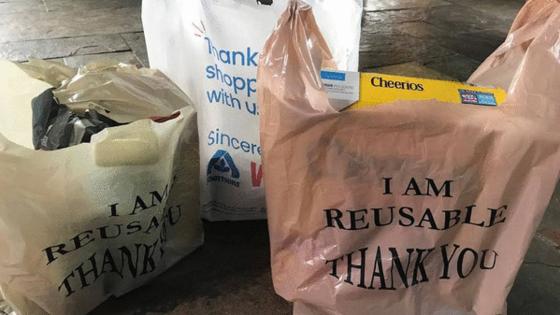California saw muted progress on climate and environment laws this year. Here's what did pass
Published in News & Features
SACRAMENTO, Mo. — Even as California continues its crackdown on the fossil fuel industry in the legislature, this year was a muted one for new state laws tackling climate change and protecting the environment.
Gov. Gavin Newsom signed bills mostly at the margins over the last week. Those include new laws to strengthen an existing plastic bag ban at grocery checkouts, reduce food and textile waste in landfills, and pilot electrification of whole neighborhoods.
He also vetoed two major bills that could have helped Californians transition away from fossil fuels, including one to require warning labels about health risks of pollutants on gas stoves and another to help renters, farmers and schools install rooftop solar panels.
Environmental advocates celebrated one major win recently: Proposition 4, the $10 billion climate bond on the November ballot. But climate action by lawmakers and the governor stand in sharp contrast to last year and 2022, when the state saw a flurry of it.
“Incremental progress is not going to cut it,” said Mary Creasman, CEO of California Environmental Voters. “I wish it wasn’t true, but we’re getting closer and closer to 2030 and we have to do more and more each year. That’s just the scientific reality.”
Budget barrier
Landmark corporate emissions reporting laws, SB 253 and SB 261, came last year. And in 2022, during a budget surplus, lawmakers and the governor approved oil well setbacks, codified carbon neutrality goals and extended the life of the state’s last nuclear plant.
This year, lawmakers faced pressure to limit costly legislation given the budget deficit, and several high profile bills died by industry opposition. Those include a first-in-the-nation measure to crack down on junk credits in the voluntary carbon offset market and an effort to make fossil fuel producers pay for climate damages.
Utility opposition killed an affordability deal spearheaded by Newsom’s administration that would have given electricity customers a one-time credit of $30, as well as a measure forcing utilities to keep political lobbying out of customers’ monthly bills.
The Assembly voted Tuesday to pass Newsom’s bid to avoid gasoline price spikes by regulating refinery backup supplies. The Senate is expected to hold hearings to consider the measure next.
“It was a mixed bag for climate progress in California this legislative session,” said Sean Hecht, managing attorney of Earthjustice’s California office. “Legislators passed several key measures for a meaningful energy transition and we saw wins to rein in fossil fuel extraction, but funding for electrification took terrible hits... we hope to see more ambitious strides forward in the next session.”
What made the cut
Here’s a list of noteworthy measures that cleared the governor’s desk:
•AB 1866 requires oil companies to submit plans for closing tens of thousands of idle oil wells in California and accelerates the pace at which the companies must do so.
•SB 1053 bans thick single-use plastic bags from grocery and convenience store checkouts. The law is a cleanup of a decade-old law that failed to work as intended.
•SB 1221 creates a pilot program to decommission gas lines for selected neighborhoods in California and retrofit them for all-electric appliances.
•In a nation-leading bid to reduce trash, AB 660 bans “sell by” labels on food and favors labels such as “use by” to cut food waste
•On landfill waste, SB 707 requires textile manufacturers to pay for a CalRecycle program to recover and recycle their products and SB 1143 expands the state’s paint recycling program.
•SB 1420 qualifies hydrogen for permit streamlining enjoyed by utilities on wind and solar development under Newsom’s infrastructure measure last year.
•AB 1963 fast tracks regulators’ review of paraquat, a herbicide banned in the European Union after research shows it can harm human health.
•AB 98 requires new warehouses to be at least 300 to 500 feet from homes. Environmental groups broadly opposed this one, saying the setback distance is not far enough to protect communities and the law requires no pollution reductions.
Didn’t make the cut
•AB 2513 would have required manufacturers to place warning labels about harmful pollutants such as nitrogen dioxide and benzyne on new gas stoves.
•AB 2619 would have directed the California Public Utilities Commission to reconsider the rooftop solar reimbursements it slashed by about 75% in a ruling last spring.
•In a win for environmental groups, the governor vetoed four bills that advocates said would have undermined California’s stronger-than-federal rules to clean up truck fleets and shipping. AB 637, AB 1122, AB 1296 and AB 3179 would have forced the Air Resources Board to submit new waiver requests, creating delays in regulations that are already on hold.
____
©2024 The Sacramento Bee. Visit at sacbee.com. Distributed by Tribune Content Agency, LLC.










Comments